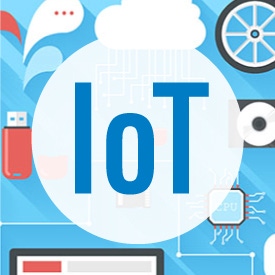
Also in today's EMEA regional roundup: EU court backs net neutrality, zaps zero-rating; Virgin Media offers 4G backup for fixed-line failure; let's get digital, says Nokia.
The future of workers at Arm's Internet of Things division, which was left out of the recently announced sale of the UK chip designer to Nvidia, looks in doubt, according to a Telegraph report (paywall applies). Under the terms of the deal, Arm states that it is pursuing an "internet of things services group reorganization plan," which will see the division being extruded into two new businesses, Pelion and Kigen, and ultimately transferred out of Arm prior to the completion of the transaction. But, says the report, 21 staff at Arm's Glasgow office have already been warned their jobs are at risk and an Arm spokesperson said ominously that the new teams "are taking some steps to ensure their resources align with the appropriate level of investment including redundancies." (See Nvidia's $40B Arm takeover is the stuff of nightmares, Hands off Arm, Nvidia and Eurobites: Arm co-founder warns against Nvidia sale.)
The future of "zero rating" of certain applications by operators looks in doubt following a ruling by Europe's highest court which effectively stood by the principles of net neutrality, Reuters reports. The judgment came in a case involving Hungarian operator Telenor Magyarorszag, which had fallen foul of the country's communications watchdog by offering zero-rated packages. The operator, however, said the judgment would not hamper its business as it had already complied with the watchdog's demands. (See Europe Urges US to Block Trump on Net Neutrality and Net Neutrality Is Not a Rational Debate.)
Virgin Media has launched a new "business-grade" service that provides a 4G backup if a business fixed-line broadband fails. Using a 4G dongle that can be plugged into a business's existing router, the service costs £7 (US$9) a month and is available on all "Voom Fibre" business broadband packages with unlimited data.
Nokia is claiming that it has "digitalized" 100% of its 5G network deployments around the world. It sounds suspiciously like the sort of claim that nobody could argue against, but what the vendor means is that it has swept away the chaotic mix of pen-and-paper and emails that previously facilitated the network deployment process and replaced it with a digital database of network assets that the customer can use to remotely and virtually access sites. We're also talking machine-learning and automation. And agility. All that.
Intracom Telecom says it has successfully completed a smart metering project for Distributie Energie Oltenia (DOE) in Romania. The company supplied a subsystem that measures and transmits data from smart three-phase and mono-phase meters (SMTs), and data concentrators.
Sweden's Spotify has slammed Apple for what it describes as "anti-competitive behavior, which if left unchecked, will cause irreparable harm to the developer community and threaten our collective freedoms to listen, learn, create, and connect." As Reuters reports, Apple has incurred Spotify's wrath by including its own Apple Music streaming service in its new Apple One subscription bundle.
The coronavirus pandemic has surely sounded the death knell for much corporate office space. Swisscom's is no exception: The operator is giving up its site at Aarbergstrasse 107 in Biel as part of its "location consolidation" program in the face of "decreasing demand for [a] permanently assigned workplace." The 180 or so call center employees who formerly made their way to Aarbergstrasse will in future answer customer queries from Lausanne and Olten.
Deutsche Telekom is using a new, cloud-based platform for IP-based voice telephony in the fixed network. The NIMS (Next Generation IP Multimedia Subsystem) platform will allow the up to 18 million connections of DT customers to be controlled centrally from the company's German data centers. In a pilot phase, DT's fixed network team put the new system through its paces, handling more than 100 million voice calls and testing calls both within DT's own network and across network boundaries.
— Paul Rainford, Assistant Editor, Europe, Light Reading
Read more about:
EuropeAbout the Author(s)
You May Also Like











